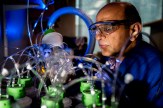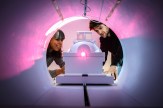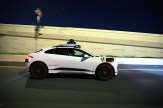Leading scientist calls on PhD grads to use power of evidence to ‘address a very serious problem’
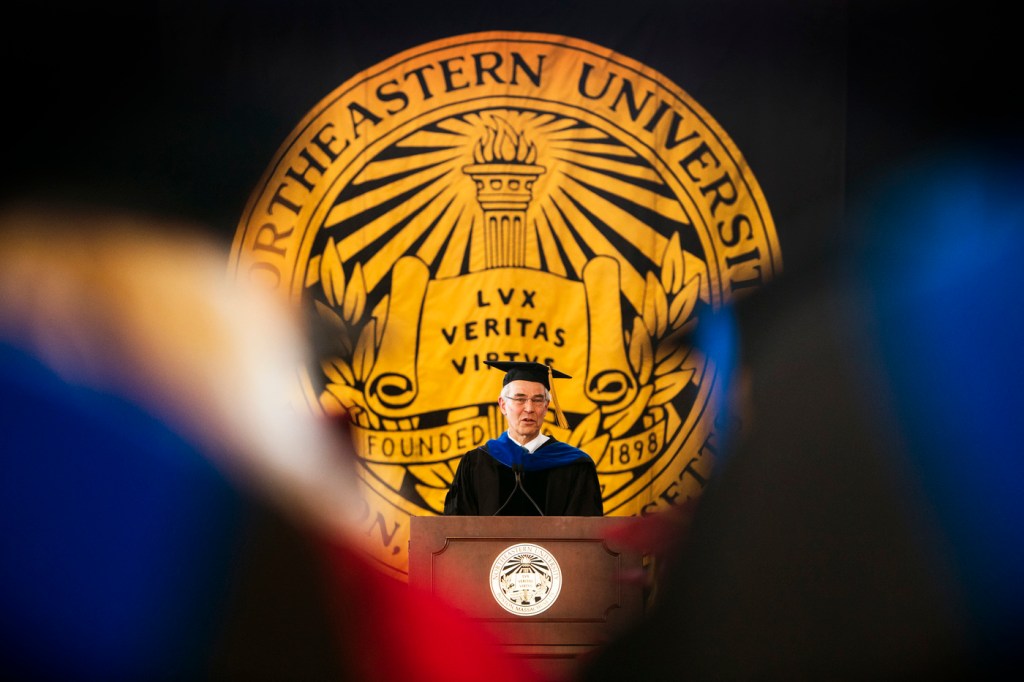
Citing the challenge to science posed by ideology and personality politics, Rush Holt, CEO of the American Association for the Advancement of Science, urged Northeastern PhD graduates to to harness the power of their experiences to underscore the value of evidence.
Speaking at the PhD Hooding and Graduation Ceremony, Holt encouraged the 184 new PhDs to join in “addressing what I think is a very serious problem.” Studies continue to show that Americans’ opinions on issues such as global warming depend less on evidence and more on personal characteristics, he said.
“Opinion, ideology, and evidence are frequently taken to be interchangeable in debates and policy,” Holt a physicist and former member of Congress, told the gathering at Cabot Cage. “Evidence is our currency.”
Holt said that this an exciting time for research in the sciences and the humanities, pointing to areas such as gene editing and climate ecology. He noted that Northeastern graduates are poised for success—particularly to succeed in the age of artificial intelligence—thanks to an education that blends scholarship with experiential learning.
Freshly awarded PhDs, he said, should share their experiences to advocate for the notion that “science is a way of answering questions empirically and verifiably.”
Holt enjoined the students to explain to the masses the work they’ve done, the research that got them to Wednesday’s ceremony–helping to illustrate that that work is part of the evidence.
“Give them the curiosity, the power to ask the most important question,” Holt said, “What is the evidence? Show me the evidence? Teach them that they can handle the evidence. That is the greatest benefit you can share from the work, the research that you have put in during your PhD.”
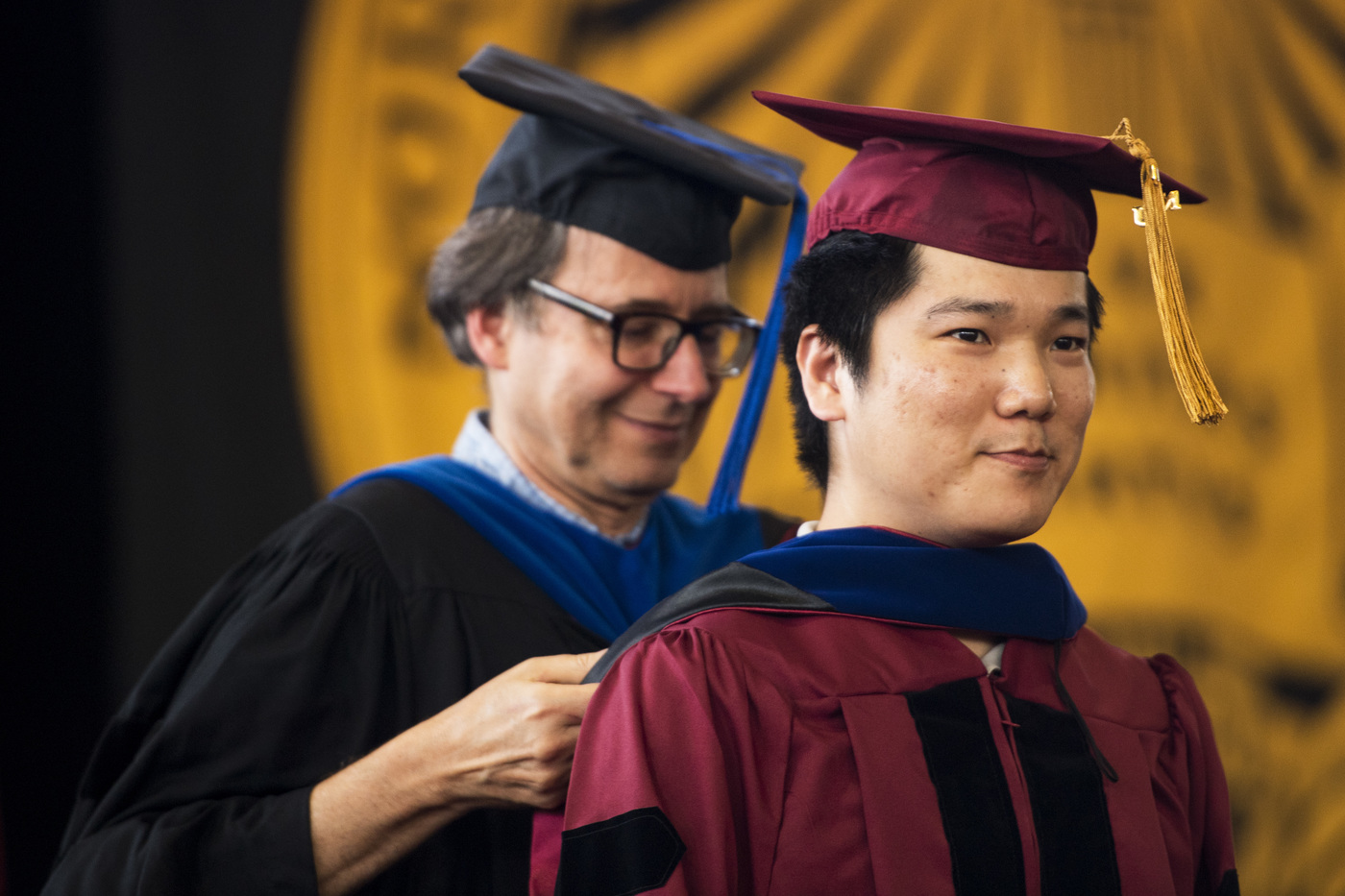
“Opinion, ideology, and evidence are frequently taken to be interchangeable in debates and policy,” Holt a physicist and former member of Congress, told the gathering at Cabot Cage. “Evidence is our currency.” Photo by Adam Glanzman/Northeastern University
James C. Bean, provost and senior vice president for academic affairs, noted that Northeastern’s focus on conducting use-inspired research and recruiting talented faculty have combined to create an intellectually ambitious and entrepreneurial environment for doctoral education.
This year’s PhD graduates earned degrees in a range of fields, from information assurance and bioengineering to personal health informatics and pharmaceutical sciences. Over the past five years, more than 900 PhD students have graduated from Northeastern, and the university now offers 33 PhD programs, each of which includes experiential opportunities.
The ceremony, said Bean, marked the “completion of a profound intellectual journey” that students and their faculty advisors travel together. “Relatively few individuals have the opportunity to discover something new, to create new knowledge, produce original works. Our graduates not only had that opportunity, but they have succeeded.”
Experiential PhD Expo
Earlier in the day, Northeastern hosted the Experiential PhD Expo to showcase the breadth and depth of research PhD students and their faculty mentors are pursuing with external partners. The expo, held in the Interdisciplinary Science and Engineering Complex, aligned with the university’s focus on transforming doctoral education by integrating experiential learning throughout its PhD programs.
Solomon Mensah, a doctoral student in bioengineering, is co-founder and CEO of Therapeutic Innovations, a startup focused on redesigning affordable and easy-to-use medical devices for people in developing countries. Its first device, Airbaby, is a facemask that delivers a combination of ambient air and oxygen to premature babies to help their lungs retain oxygen.
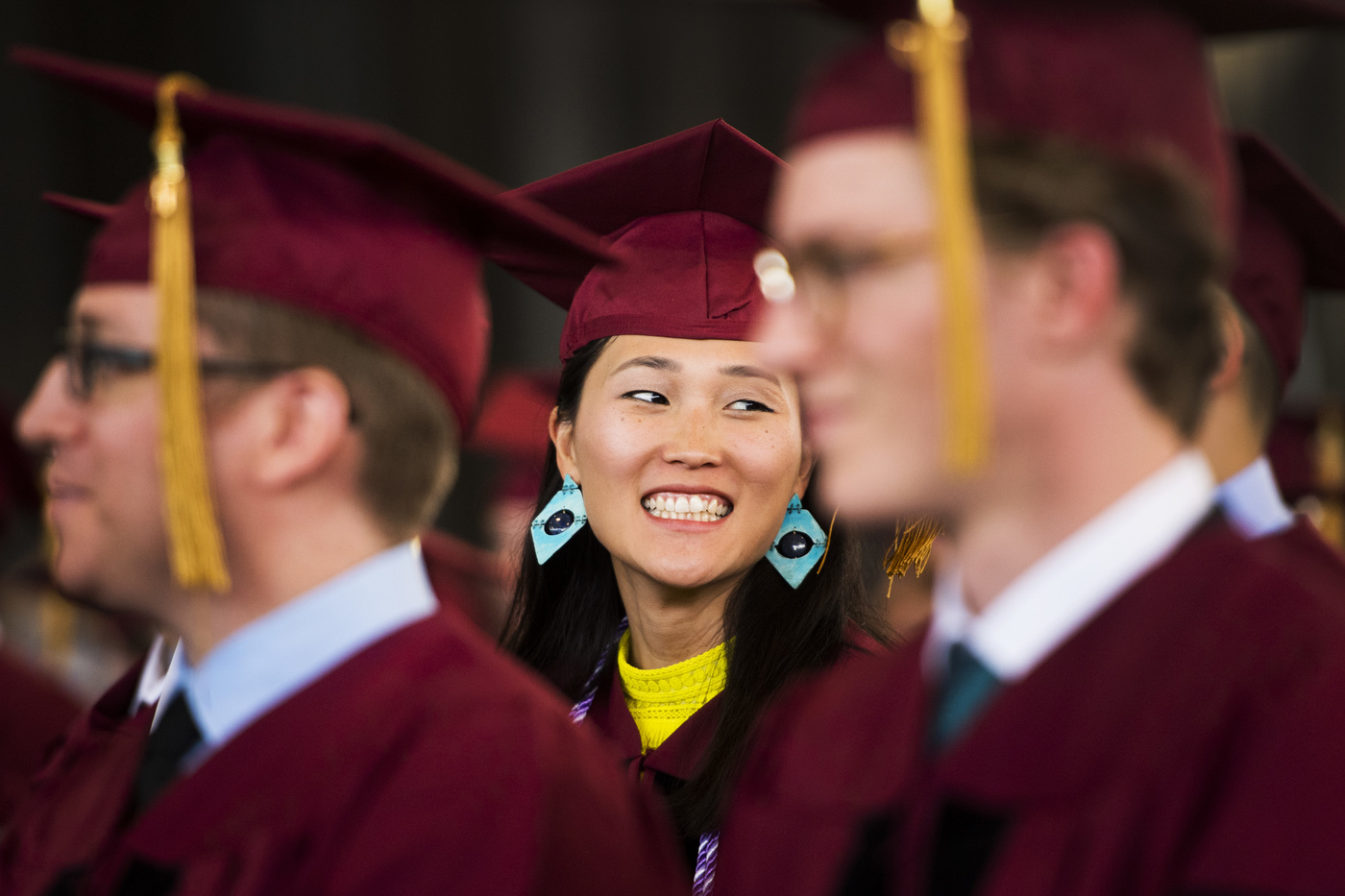
This year’s PhD graduates earned degrees in a range of fields, from information assurance and bioengineering to personal health informatics and pharmaceutical sciences. Over the past five years, more than 900 PhD students have graduated from Northeastern. Photo by Adam Glanzman/Northeastern University
Mensah said Therapeutic Innovations has worked with numerous partners, including hospitals, health ministries, startup accelerator programs, and the National Science Foundation. This summer, he is traveling to Ghana—his home country—and India to test the product. He created the startup after seeing firsthand the high mortality rates of premature babies in Ghana. “We need to be able to reengineer these types of devices to make them more affordable,” he said.
Other presenters included Murphy Wonsick, a doctoral student in computer engineering who is working with Valkyrie, a 6-foot-2-inch, 275-pound humanoid robot developed by NASA.
Wonsick is part of a team led by Northeastern associate professor Taskin Padir, who NASA selected to perform advanced research and development work on Valkyrie. As part of a partnership with MassRobotics, she’s currently focused on using virtual reality to help humans communicate with Valkyrie once the robot is deployed to deep space.
Westley Tear, a chemistry student, is focused on treating neglected tropical diseases. In June, he will begin a experiential PhD co-op at GSK, which partnered with Northeastern’s Laboratory for Neglected Disease Drug Discovery to repurpose known human kinase inhibitors for human African sleeping sickness. “I can take a lot of the skills I’ve learned in the lab and apply them to a new project,” he said.

